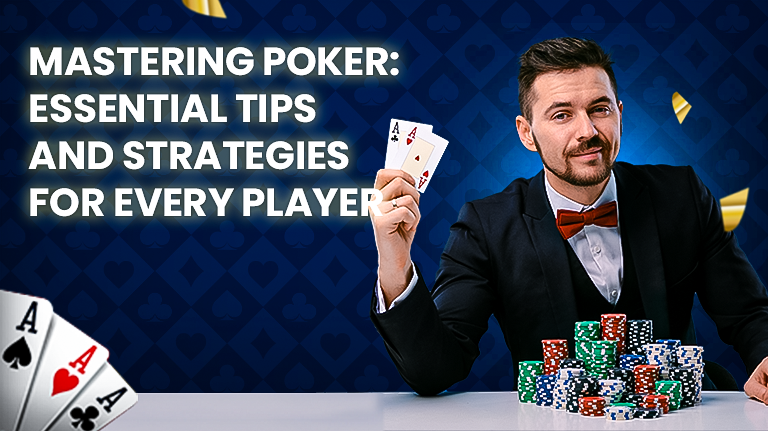Poker is more than just a game of cards—it’s a blend of strategy, psychology, and calculated risks. Whether you’re a novice or looking to refine your skills, understanding the core principles can significantly enhance your gameplay.
🃏 1. Grasp the Fundamentals
Before diving into advanced tactics, ensure you have a solid foundation:
- Hand Rankings: Familiarize yourself with the hierarchy—from Royal Flush to High Card.
- Game Variants: Understand the nuances of Texas Hold’em, Omaha, and Seven-Card Stud.
- Betting Structures: Learn the differences between No-Limit, Pot-Limit, and Fixed-Limit games
📍 2. The Power of Position
Your seat at the table influences your strategy:
- Early Position: Play conservatively; you’re first to act.
- Middle Position: Offers a balance between caution and aggression.
- Late Position: Provides the advantage of observing opponents before making decisions
🎭 3. Mastering the Art of Bluffing
Bluffing is a pivotal aspect of poker
Semi-Bluff: Bet with a drawing hand that could improve.
- Pure Bluff: Bet with a weak hand, aiming to make opponents fold.
- Reading Opponents: Pay attention to betting patterns and behaviors to time your bluffs effectively
📊 4. Calculating Pot Odds and Expected Value
Make informed decisions by understanding
- Pot Odds: The ratio of the current size of the pot to the cost of a contemplated call.
- Expected Value (EV): A measure of the average outcome of a decision, helping determine profitability over time.
🧠 5. Adapting to Opponents
Tailor your strategy based on player types:
- Tight Players: Exploit their cautious nature with aggressive plays.
- Loose Players: Be patient and wait for strong hands to capitalize.
- Aggressive Players: Use their aggression against them by trapping with strong hands.
- Passive Players: Extract value through consistent betting.
💰 6. Bankroll Management
Safeguard your funds with disciplined bankroll management:
- Set Limits: Only risk a small percentage of your total bankroll in a single game.
- Avoid Chasing Losses: Stick to your strategy, even during downswings.
- Regular Reviews: Assess your performance and adjust stakes accordingly.
📚 7. Continuous Learning
Elevate your game by:
- Studying: Read books, watch tutorials, and analyze professional games.
- Using Tools: Leverage software to review hands and simulate scenarios.
- Engaging with Communities: Join forums and discussion groups to share insights and strategies.
Final Thoughts
Mastering poker is a journey of continuous learning and adaptation. By internalizing these strategies and maintaining discipline, you can enhance your skills and enjoy greater success at the tables.
For more insights and updates, stay connected with Shreenath365.blog.
